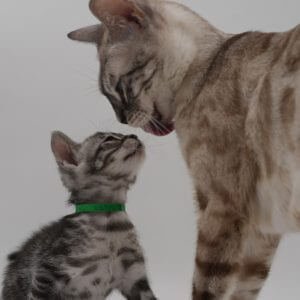At Pet Perfect Bengals this starts before the kittens are even born by making sure their parents are in excellent health. Our Kings and Queens are vetted and genetically tested to ensure excellent health. Their testing includes: FIV, FELV ( Negative) & PK Def, PRA, PRA Bengal (N/N) & 40+ genetic health tests, genetic diversity, and 20+ traits. We also test for 6 Respiratory and 9 Digestive health concerns. To continually promote the Bengal cat’s health they must be provided with an optimal environment for development, this includes:

Because the Bengals body may not be able to break down Ketamine properly, an overdose or severe reaction can occur, which could include extreme hallucinations, rapid heartbeat, vomiting, dehydration, and death. Reactions may not occur right away as ketamine stays in the blood for a while and doesn’t wear off quickly.